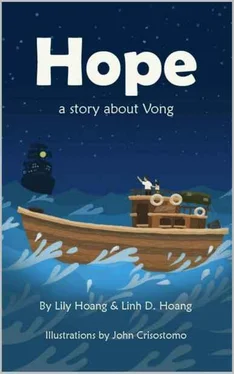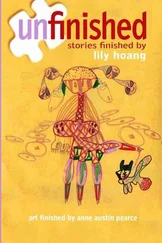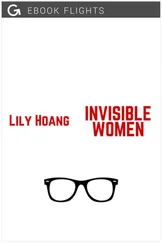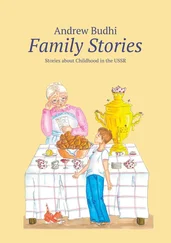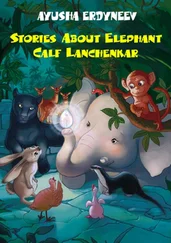Lily Hoang - Hope - A Story About Vong
Здесь есть возможность читать онлайн «Lily Hoang - Hope - A Story About Vong» весь текст электронной книги совершенно бесплатно (целиком полную версию без сокращений). В некоторых случаях можно слушать аудио, скачать через торрент в формате fb2 и присутствует краткое содержание. Год выпуска: 2013, Издательство: Linh D. Hoang, Жанр: Современная проза, на английском языке. Описание произведения, (предисловие) а так же отзывы посетителей доступны на портале библиотеки ЛибКат.
- Название:Hope: A Story About Vong
- Автор:
- Издательство:Linh D. Hoang
- Жанр:
- Год:2013
- ISBN:нет данных
- Рейтинг книги:5 / 5. Голосов: 1
-
Избранное:Добавить в избранное
- Отзывы:
-
Ваша оценка:
- 100
- 1
- 2
- 3
- 4
- 5
Hope: A Story About Vong: краткое содержание, описание и аннотация
Предлагаем к чтению аннотацию, описание, краткое содержание или предисловие (зависит от того, что написал сам автор книги «Hope: A Story About Vong»). Если вы не нашли необходимую информацию о книге — напишите в комментариях, мы постараемся отыскать её.
Hope: A Story About Vong — читать онлайн бесплатно полную книгу (весь текст) целиком
Ниже представлен текст книги, разбитый по страницам. Система сохранения места последней прочитанной страницы, позволяет с удобством читать онлайн бесплатно книгу «Hope: A Story About Vong», без необходимости каждый раз заново искать на чём Вы остановились. Поставьте закладку, и сможете в любой момент перейти на страницу, на которой закончили чтение.
Интервал:
Закладка:
“It’s because we’re not allowed to leave the camp,” his father explained. “We are refugees.”
“What is a refugee?” Vong asked.
“A refugee is someone who has left his country,” his father said. “Right now, we will have to take refuge here until we find a new country where we can live.”
Vong quickly learned that life at the refugee camp was different from life at home. There was no school for him to attend and no animals to take care of. In fact, there was not much for him to do except to wait for news about their new country.
Still, being in the camp was better than being cramped up in the small wooden boat. At least here, Vong could run around and play games with the other children. He could also go to the beach everyday so he could swim just like he used to do in the Mekong River and make castles out of the soft, white sand. He was even able to make a kite out of newspapers and sticks, which he played with on the beach.
At night, Vong and the other refugees would gather around the fire. They would sing songs and tell stories, mostly about life in Vietnam. It was during one of those stories that Vong learned the real reason why they left their home. He learned that after the war, life became more difficult in Vietnam, especially because of the re-education camps, which was just another word for prison camps. Although his father had never shown it, he had been worried about the future of his family, especially of his four children, which was why he and his friends had decided to save some money and build a small, wooden fishing boat so they could escape the country and go to America — the land of opportunity.
After learning all these, Vong realized just how much his parents had to sacrifice and he did his best to help them. Slowly, as the days passed in the refugee camp, Vong grew up, no longer a child who was merely concerned with playing, but a young man. Like the rest of his family, he was prepared to make sacrifices and like them, he waited anxiously to begin his new life in America.
Every month, more refugee families came to Palawan refugee camp, fleeing Vietnam in search of a new country and a new life. With help from the United Nations High Commissioner for Refugees, many families accepted entrances to Canada, Australia, Japan, France, United Kingdom, Germany and Norway.
Patiently, Vong and his family waited for their turn to go to the United States of America and finally, after 12 months, their wish was granted.
Part 3 — America: A New Beginning
Vong’s family flew from Palawan to Manila, then from the Ninoy Aquino International Airport to the San Francisco International Airport in California. Vong had never been on an airplane before and so he was very excited during the long flight that he was hardly able to sleep. He looked out the window at the clouds and thought of all the wonderful things he had heard about America. He could not wait to see America.
At the airport, Vong’s family is met by a group of happy nuns from Catholic Charities. They bring Vong and his family to Oakland, a city by the bay, and helped them settle into their three-bedroom apartment in a government housing project. This small apartment would be their new home and though it was small, especially for eight people, and had only one bathroom, nobody complained. They were simply happy to live together in a place where they could begin their life in America.
If living in a refugee camp was a surprise to Vong, living in Oakland was very different. It was a whole new world compared to Vietnam. There were also so many people from all walks of life; they looked and dressed differently and spoke languages that Vong had never heard before.
Even after sunset, the city did not go to sleep. It seemed even more alive with bright streetlights, loud music streaming from car radio and even sporadic police sirens.
Unlike in the small village where everyone grew their own food, the food in Oakland was bought from large supermarkets where they were in colorful packages neatly lined up in shelves. Even the fruits and vegetables, which were bigger than those Vong had seen, were well-arranged while the drinks and meats were kept in gigantic fridges which sent a cool breeze against Vong’s cheeks each time he opened them.
Indeed, everything looked so nice that just a visit to the supermarket alone was a treat for Vong. They receive government food stamps with a strict budget of about $3 a day per person for food. They did not have much money and so they bought only the essentials such as rice, green vegetables and fish. They couldn’t afford the salty snacks, the colorful drinks and sweets that Vong loved to look at.
Sometimes, the family ran out of food stamps before the end of the month, Grandma and Grandpa put on their hats and walked to the local food bank for some free bags of food. The bag contains cans of sardines that had recently expired but were still good to eat and apples and cabbages with few brown spots that did not look good enough to be displayed on the supermarket shelves but were still good enough to eat.
Vong was thankful for the free food, but he knew it was only a last resort, just a temporary way to keep food in their stomachs until they could make ends meet again. He knew that receiving free food made his Grandma and Grandpa uncomfortable since it was as shameful as begging for them.
Once Vong and his family had settled in, it was time for Vong and his three older brothers to enroll in the local public school. Vong was a little scared to be going to a new school in a new country. He was afraid he wouldn’t fit in, especially since he did not speak any English.
On his first day of school, Vong gathered his courage and told himself to be brave. He wanted to study so that he could help his mother and father someday. He put on his newest t-shirt from the Goodwill store, which was where second-hand clothes were sold for very low prices. The t-shirt was two sizes too big but Vong did not complain. Instead, he tucked the extra length inside his pants.
Since his Mom and Dad were both busy working at their new jobs, Vong walked to Lockwood Elementary School with his Grandma and Grandpa. Two of his older brothers would be attending the Havenscourt Middle School adjacent his school while his oldest brother was going to Fremont High School at the opposite end of town.
Vong and his Grandma and Grandpa went straight to the principal’s office to enroll Vong in the fourth grade. They had to fill out many forms with a translator; it took them over an hour to fill out all the forms. The principal, who was a nice old woman with thin glasses, reviewed the forms. She went through all of them quickly then went back to the very first one.
“Hmm, I like your name,” she said. “But I notice that you don’t have a nickname. Would you like to come up with one?”
“Vong is my name,” Vong answered with the help of the translator.
“I understand,” the principal said. “But sometimes, a nickname is easier for other kids.”
Vong understood what the principal was trying to say but he didn’t want any other name. “I’d like to keep my name if that’s okay,” he said.
“Got it, then!” The principal nodded with a smile.
After leaving the principal’s office, Vong’s Grandma and Grandpa head back home. Alone, Vong feels scared again but he told himself to be brave and kept his shoulders straight. The principal walked Vong to Rm. 126 to meet the instructor who dressed in a bright pink floral blouse and beautiful, long dreadlocks.
The principal turned to Vong. “This is Ms. Carter.”
Vong nodded, understanding.
“I’m happy to have you in my class, Vong,” Ms. Carter said as she gave him a hug. Then, she led Vong inside the classroom so that he could stand in front of the class. “Everyone, may I have your attention please. This is our new classmate, Vong. Vong is a refugee from Vietnam and he and his family just arrived so please give him a warm welcome.”
Читать дальшеИнтервал:
Закладка:
Похожие книги на «Hope: A Story About Vong»
Представляем Вашему вниманию похожие книги на «Hope: A Story About Vong» списком для выбора. Мы отобрали схожую по названию и смыслу литературу в надежде предоставить читателям больше вариантов отыскать новые, интересные, ещё непрочитанные произведения.
Обсуждение, отзывы о книге «Hope: A Story About Vong» и просто собственные мнения читателей. Оставьте ваши комментарии, напишите, что Вы думаете о произведении, его смысле или главных героях. Укажите что конкретно понравилось, а что нет, и почему Вы так считаете.
